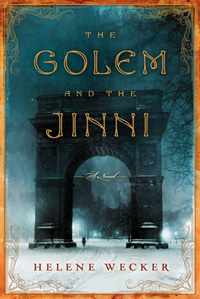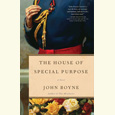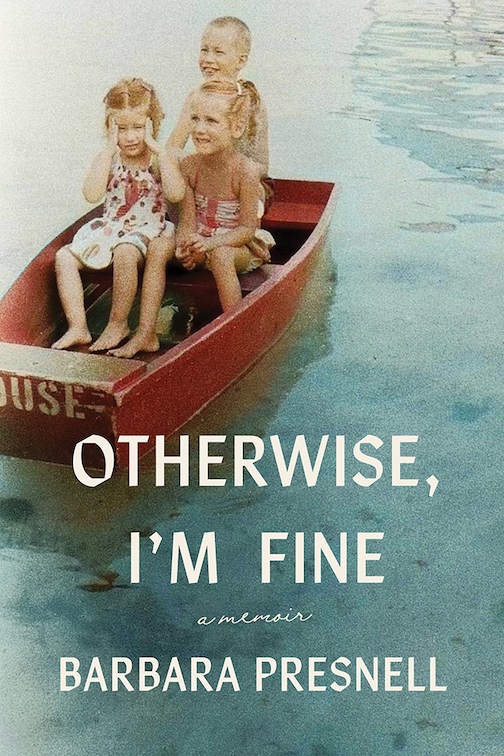Earth and Fire
Helene Wecker explores Jewish and Arab myth against the backdrop of immigrant life in 1899 New York
In Helen Wecker’s debut novel, The Golem and the Jinni, it is 1899, and two magical creatures appear on the teeming streets of New York’s Lower East Side. The Golem arrives at Ellis Island like any other immigrant from the Old World, though she walks to Manhattan across the bottom of the harbor to evade authorities. The Jinni pops out of a metal flask when a Syrian metalworker attempts to repair it.
 A Polish rabbi steeped in dark Kabbalistic arts created the Golem for a customer who demanded certain traits in a wife: “Obedience. Curiosity. Intelligence. Virtuous and modest behavior. Obedience innate. Intelligence the most difficult. Curiosity the most dangerous,” reflects the rabbi. “She will make him an admirable wife, if she doesn’t destroy him first.” After her master dies on their voyage to America, the Golem must make her way in the Jewish ghetto, masterless, navigating conflicting choices, buffeted by the needs and fears of everyone around her, holding on to her identity, sometimes with difficulty.
A Polish rabbi steeped in dark Kabbalistic arts created the Golem for a customer who demanded certain traits in a wife: “Obedience. Curiosity. Intelligence. Virtuous and modest behavior. Obedience innate. Intelligence the most difficult. Curiosity the most dangerous,” reflects the rabbi. “She will make him an admirable wife, if she doesn’t destroy him first.” After her master dies on their voyage to America, the Golem must make her way in the Jewish ghetto, masterless, navigating conflicting choices, buffeted by the needs and fears of everyone around her, holding on to her identity, sometimes with difficulty.
The Jinni’s journey is equally painful. A native of the Syrian desert, he is by nature conscienceless, fierce, proud—and, most of all, free. Yet fascination with humans is also a mark of his race, and a particular Bedouin girl is his downfall. As the girl slips into madness, her father seeks out a powerful wizard, who traps the Jinni and locks him in human form with an unbreakable iron cuff. Wecker renders the moment beautifully: “A bright flash seared the Jinni’s eyes, lighting the chamber to translucence. There was a horrible sense of diminishment as the wizard’s spell gathered and compressed his being, banking his essence to the merest spark. Slowly the flask drew him in—and time slowed to an elongated instant, full of the taste of metal and a wild, searing anguish.”
 Inevitably, the creature of earth and the creature of fire meet in New York and recognize the other’s true form, alien and mysterious: “The air around her held a breath of mist, and the scent of something dark and rich. ‘What are you?’ he asked. She said nothing, gave no indication she’d understood. He tried again. ‘You’re not human. You’re made of earth.’ At last she spoke. ‘And you’re made of fire.’” As the story unfolds, their dilemma becomes an exploration of what it means to master a craft, face moral ambiguities, and experience the pain and grief of human relationships.
Inevitably, the creature of earth and the creature of fire meet in New York and recognize the other’s true form, alien and mysterious: “The air around her held a breath of mist, and the scent of something dark and rich. ‘What are you?’ he asked. She said nothing, gave no indication she’d understood. He tried again. ‘You’re not human. You’re made of earth.’ At last she spoke. ‘And you’re made of fire.’” As the story unfolds, their dilemma becomes an exploration of what it means to master a craft, face moral ambiguities, and experience the pain and grief of human relationships.
Drawing as much from Star Trek’s Commander Data as from the Golem of Prague, and from malicious sprites as much as from the Arabian Nights, The Golem and the Jinni brings to life the kaleidoscope world of New York’s Lower East Side at the turn of the twentieth century, including the Jewish ghetto, where the Golem works in a bakery, and Little Syria, where the Jinni, posing as Ahmad the metal smith, creates marvelous works in gold and silver.
Wecker herself is tied to both worlds. Her family is Jewish; her husband is Syrian. Both families immigrated to the United States in the 1940s, and the children grew up not quite fitting into their picket-fence suburban world. While working on her M.F.A. at Columbia University, Wecker tried to capture that tension in short fiction. When she added the element of magic to her unpublished short stories about those immigrant lives, the result was The Golem and the Jinni, her first novel.
Helene Wecker will discuss The Golem and the Jinni at the twenty-fifth annual Southern Festival of Books, held in Nashville October 11-13, 2013. All festival events are free and open to the public.


